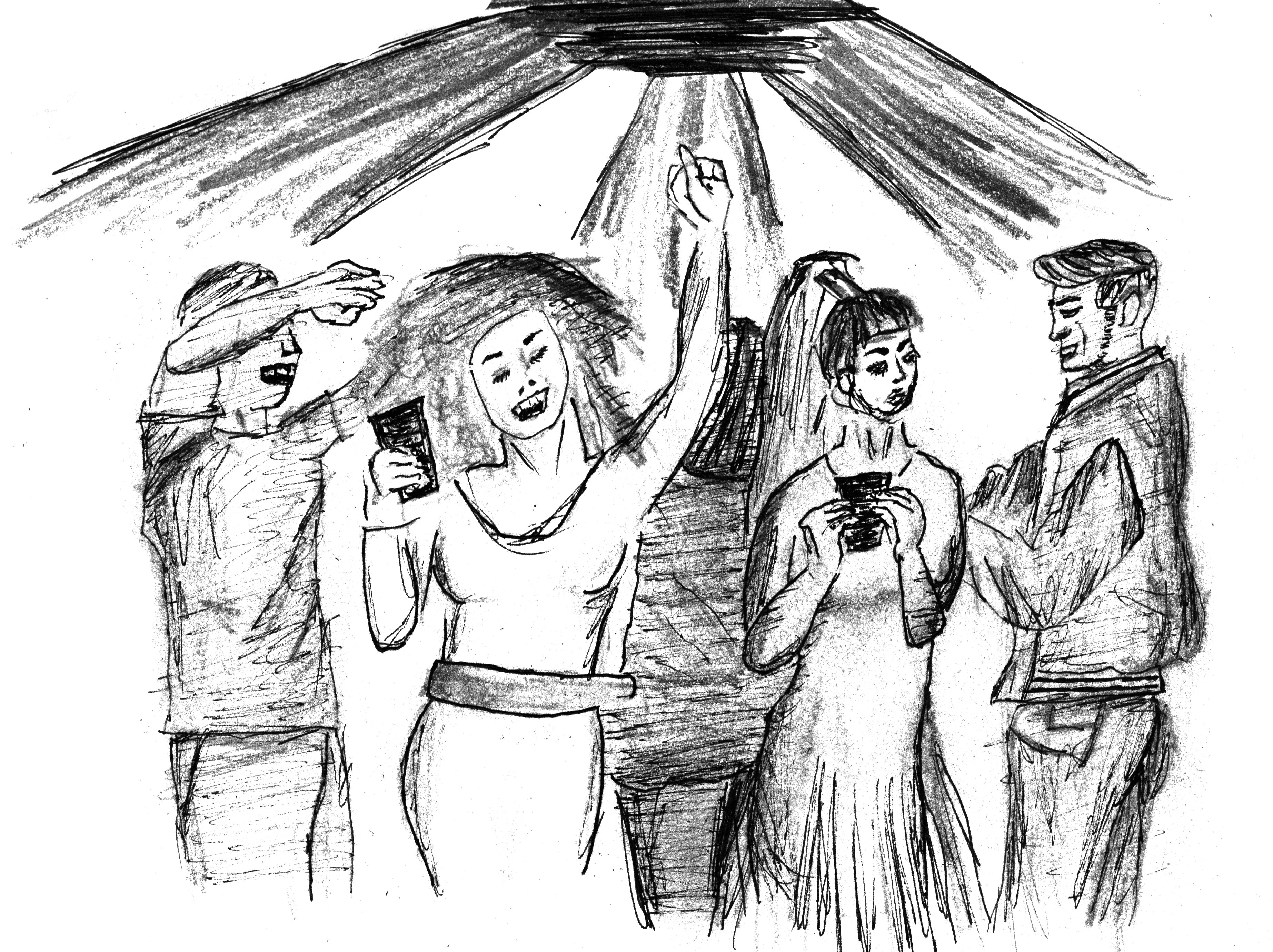
“You look like one of the more uncomfortable people at this party,” I was told on New Year’s Eve by a boy I half-knew in high school. I didn’t really have a comeback for that one, and I must have looked a little hurt, because he immediately tried to play it off as a compliment. He insisted that what he meant to say was more that I was somehow above the party, rather than on its awkward periphery. Welcome or unwelcome though his comment may have been, he was correct. The house was filled with people I thought I’d never see after high-school graduation, and once I had the five or six conversations I wanted to have, I was essentially left to my discomfort. Which, apparently, was obvious.
I’d always felt that nobody really knew or cared what you were thinking at a party, that it was all really just movement and noise, that emotions were sort of beside the point. When I was younger, I remember being acutely aware of the feeling that immediately followed a party, the getting home and sitting in my kitchen, eating Cheerios and staring out the window. That quiet. It was in those moments, not with friends or on a dance floor, that I decided if I had had fun, if there were any boys there whom I would want to see the following weekend, whether or not I had felt “comfortable” or “uncomfortable.” For years there seemed to be a gap between my experience of going out and the time it took to process how I felt about the ordeal. But recently, party-going itself has become an emotionally charged endeavor in a way that the girl with cereal after the eighth-grade Snow Ball would have never imagined.
A good party is one where every time you turn around, someone you love is there to dance with you, and there is cake (or penny drinks). For the past three years, these are the places where I have had fun. Recently, though, I’ve felt something more than just fun. The right song comes on while I’m with the right configuration of friends and suddenly a smothering happiness descends with such intensity that I may as well be at my own wedding. It’s borderline outrageous to be so in love with so many people in one moment. I don’t know if in the January of my senior year, it’s a sign that the end is here and we don’t have time to feel anything but this, or that everything will be okay even once the end has passed.
But, when the highs are higher, the lows feel lower too.
Moments of true joy make it difficult to simply return to that emotionally neutral party mode, so I’ve become hyperaware of the moments spent scanning the room for an acquaintance to greet, or the one person at the party I actually like, but just can’t find. It’s strange to stand on the sidelines without feeling compelled to force your way back through the crowd in search of some real or invented target.
It’s easy to write off both these experiences as unremarkable. Parties are silly and frivolous and blur together. But in the past week, I’ve thought more about the rooms I’ve been in and the people who fill them, and the fact that the twain shall not meet forever. It’s all too easy to slap a “the last whatever” label on any event and make it seem significant. Yet perhaps that’s not an accident. If you want to feel something you’ll never feel again, you have to care in the first place. So I’ve dropped the veneer of detachment, because I don’t think it’s possible to be the happiest girl at one party, if I can’t also be the most uncomfortable girl at another.
Caroline Sydney is a senior in Silliman College. Her column runs on alternate Tuesdays. Contact her at caroline.sydney@yale.edu .







